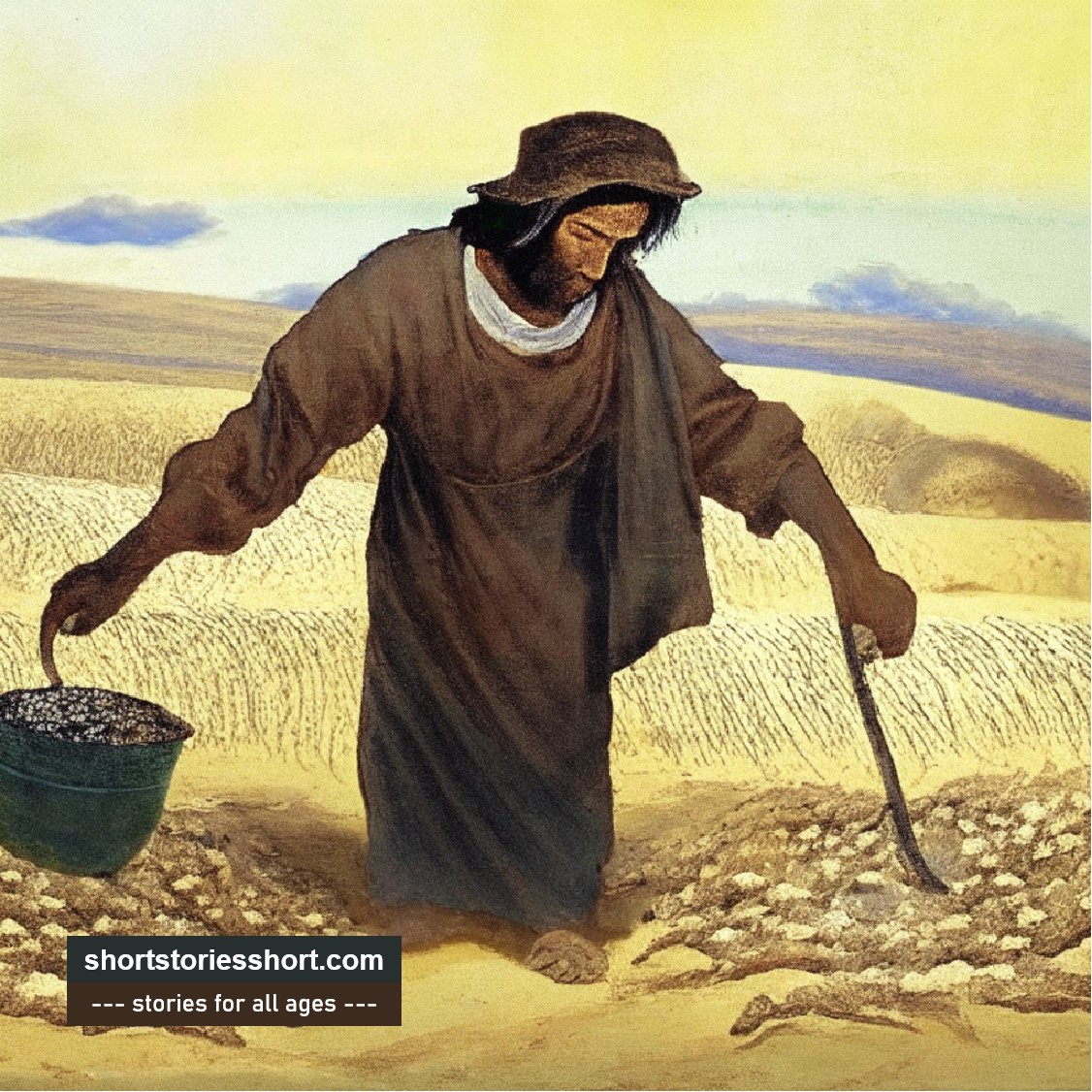
The Parable of the Sower is a well-known parable from the Bible found in three of the Gospels: Matthew 13:3-9, Mark 4:3-9, and Luke 8:5-8. It goes as follows:
A sower went out to sow seeds, and as he scattered the seeds, some fell along the path, and the birds came and devoured them. Some fell on rocky ground, where they didn’t have much soil, and immediately they sprang up because they had no depth of soil. But when the sun rose, they were scorched, and because they had no root, they withered away. Other seeds fell among thorns, and the thorns grew up and choked them. But some seeds fell on good soil and produced grain, some a hundredfold, some sixty, some thirty. He who has ears, let him hear.
This parable is often followed by an explanation given by Jesus, where he states that the seed represents the word of God or the message of the kingdom, and the different types of soil represent the different responses people have to that message. It highlights the importance of receiving the word of God with an open and receptive heart to bear fruit and grow in faith.
This parable teaches about the conditions of the human heart and how people respond differently to the message of God. It encourages listeners to examine their own hearts and strive to be like the good soil that receives the word, allowing it to take root and bear fruit in their lives.
In the parable, a sower goes out to sow seeds. As he scatters the seeds, they fall on four different types of soil:
1. Along the path: Some seeds fall on the path, where the ground is hard and compacted. The birds quickly come and eat the seeds before they have a chance to grow. Jesus explains that this represents those who hear the message but do not understand it. The evil one snatches away the message from their hearts, and it doesn’t take root.
2. Rocky ground: Other seeds fall on rocky ground with a shallow layer of soil. These seeds sprout quickly because the soil is not deep enough to support growth. However, because they lack root, they wither away when the sun comes up and scorches them. Jesus explains that this represents those who hear the message and receive it with joy initially, but their faith doesn’t have depth. When they face persecution or difficulties, they quickly fall away.
3. Among thorns: Some seeds fall among thorns, which grow up alongside the seeds and choke them. These seeds don’t bear fruit. Jesus explains that this represents those who hear the message but are quickly overcome by the cares of the world, the deceitfulness of wealth, and the desires for other things. These distractions prevent the word from bearing fruit in their lives.
4. Good soil: Finally, some seeds fall on good soil. They take root, grow, and produce a bountiful harvest—some a hundredfold, some sixty, and some thirty. Jesus explains that this represents those who hear the message, understand it, and bear fruit in their lives. They receive the word with a receptive and obedient heart, and it brings about a transformation that is evident in their actions and character.
The parable teaches that the condition of the human heart determines how people respond to the message of God. It urges listeners to be like the good soil, cultivating a receptive heart that allows the word of God to take root and bear fruit in their lives. It emphasizes the importance of understanding, faithfulness, and perseverance in receiving and applying the message of God’s kingdom.